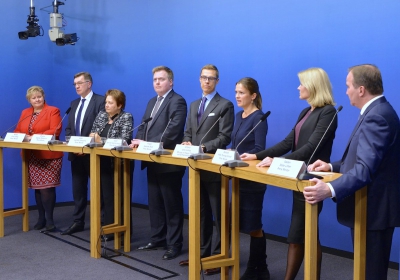The assassination of Benazir Bhutto took place on 27 December 2007 in Rawalpindi, Pakistan. Benazir Bhutto, twice Prime Minister of Pakistan (19881990; 19931996) and then-leader of the opposition Pakistan Peoples Party, had been campaigning ahead of elections scheduled for January 2008. Shots were fired at her after a political rally at Liaqat National Bagh, and a suicide bomb was detonated immediately following the shooting. She was declared dead at 18:16 local time (13:16 UTC), at Rawalpindi General Hospital. Twenty-three other people were killed by the bombing. Bhutto had previously survived a similar attempt on her life (the 2007 Karsaz bombing) that killed at least 180 people, after her return from exile two months earlier.
Though early reports indicated that she had been hit by shrapnel or the gunshots, the Pakistani Interior Ministry initially stated that Bhutto died of a skull fracture sustained when the force of the explosion caused her head to strike the sunroof of the vehicle. Bhutto's aides rejected this version of the story, and argued instead that she suffered two gunshots before the bomb detonation. The Interior Ministry subsequently backtracked from its previous claim.In May 2007, Bhutto had asked for additional protection from foreign contracting agencies Blackwater and the British firm ArmorGroup. The United Nations' investigation of the incident revealed that, "Ms. Bhutto's assassination could have been prevented if adequate security measures had been taken."
A prime minister or a premier is the head of the cabinet and the leader of the ministers in the executive branch of government, often in a parliamentary or semi-presidential system. Under those systems, a prime minister is not the head of state or a monarch, but rather the head of government, serving typically under a monarch in a democratic constitutional monarchy or under a president in a republican form of government.
In parliamentary systems fashioned after the Westminster system, the prime minister is the presiding and actual head of government and head of the executive branch. In such systems, the head of state or their official representative (e.g., monarch, president, governor-general) usually holds a largely ceremonial position, although often with reserve powers.
Under some presidential systems, such as South Korea and Peru, the prime minister is the leader or most senior member of the cabinet, not the head of government.
In many systems, the prime minister selects and may dismiss other members of the cabinet, and allocates posts to members within the government. In most systems, the prime minister is the presiding member and chairman of the cabinet. In a minority of systems, notably in semi-presidential systems, a prime minister is the official appointed to manage the civil service and execute the directives of the head of state.
Today, the prime minister is often, but not always, a member of the legislature or its lower house, and is expected with other ministers to ensure the passage of bills through the legislature. In some monarchies the monarch may also exercise executive powers (known as the royal prerogative) without the approval of parliament.
As well as being head of government, being prime minister may require holding other roles or posts—the prime minister of the United Kingdom, for example, is also First Lord of the Treasury and Minister for the Civil Service. In some cases, prime ministers may choose to hold additional ministerial posts (e.g. when the portfolio is critical to that government's mandate): during the Second World War, Winston Churchill was also Minister of Defence (although there was then no Ministry of Defence). Another example is the Thirty-fourth government of Israel (2015–2019), when Benjamin Netanyahu at one point served as the prime minister and minister of Communications, Foreign Affairs, Regional Cooperation, Economy, Defense and Interior.

2007Dec, 27
Former Pakistani prime minister Benazir Bhutto is assassinated in a shooting incident.
Choose Another Date
Events on 2007
- 9Jan
IPhone
Apple CEO Steve Jobs introduces the original iPhone at a Macworld keynote in San Francisco. - 29Jun
IPhone
Apple Inc. releases its first mobile phone, the iPhone. - 12Jul
July 12, 2007 Baghdad airstrike
U.S. Army Apache helicopters perform airstrikes in Baghdad, Iraq; footage from the cockpit is later leaked to the Internet. - 4Aug
Phoenix (spacecraft)
NASA's Phoenix spacecraft is launched. - 18Sep
Saffron Revolution
Buddhist monks join anti-government protesters in Myanmar, starting what some call the Saffron Revolution.

 English
English  español
español  français
français  português
português  русский
русский  العربية
العربية  简体中文
简体中文 